Search Results
Showing results 1 to 17 of 17
What's the Difference?
Source Institutions
In this sorting activity, learners play a game in which they try to identify the largest number of differences between two objects.
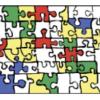
Finding a Gene on the Chromosome Map
Source Institutions
In this activity, learners use pedigree and jigsaw puzzles to explore how scientists use genetic information from a family to identify a gene associated with a genetic disorder.

Dr. Vet: Noses, Ears, Legs and Eyes
Source Institutions
In this activity, learners practice counting and multiplication as they figure out how many animal body parts they have to examine as "Dr. Vet."

Kaleidoscope
Source Institutions
In this activity, learners build inexpensive kaleidoscopes using transparency paper and foil (instead of mirrors).
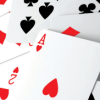
Odd Man Out
Source Institutions
In this math game (Page 14 of the Are You Game? PDF), learners determine the probability of getting an even versus an odd product using the numbers on a regular deck of cards.
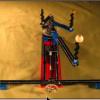
LEGO Orrery
Source Institutions
Use this model to demonstrate the goal of NASA's Kepler Mission: to find extrasolar planets through the transit method.
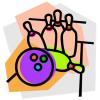
Strike 'em Down & Add 'em Up!
Source Institutions
In this activity, reuse two-liter bottles to create bowling pins. Learners practice math skills and develop a concept of verifying answers, while bowling and keeping score.

Kid Moon: Splat!
Source Institutions
In this activity, learners model ancient lunar impacts using water balloons.
More Bubbles!
Source Institutions
In this math activity, learners make their own bubble wands and determine if the size of the wand affects the number of bubbles it produces.
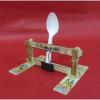
Catapult
Source Institutions
In this activity, learners build mini catapults using paint paddles and a spoon. Use this activity to introduce learners to forces and projectile motion.
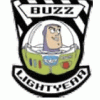
Buzz Lightyear Connect It!: Flight Path Activity
Source Institutions
In this activity, "space cadets" (learners) use writing and sequencing skills in addition to directional words/ordered pairs to guide Buzz Lightyear (from the movie "Toy Story") through a grid to reac

Is it a Fair Game?
Source Institutions
In this math activity, learners play two versions of a card game and decide what makes a game fair. Learners also practice addition and subtraction skills.
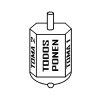
Toma Todo
Source Institutions
In this activity, learners play a traditional Mexican game of chance with a twist. Learners take turns spinning a special "Toma Todo" top.
Peppy's Day in the Park
Source Institutions
In this math activity, learners build Peppy the dog the best trail and park for running around.

Bubble Sculpting
Source Institutions
In this activity, learners develop spatial reasoning skills as they blow bubbles and observe what happens when the bubbles connect.
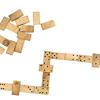
Domino Trains
Source Institutions
In this activity, learners practice matching and subitizing as they create the longest domino train possible.

Balloon Impacts
Source Institutions
In this activity, learners measure the diameter of their water balloons, model an impact, measure the diameter of the “crater” area, and determine the ratio of impactor to crater.
